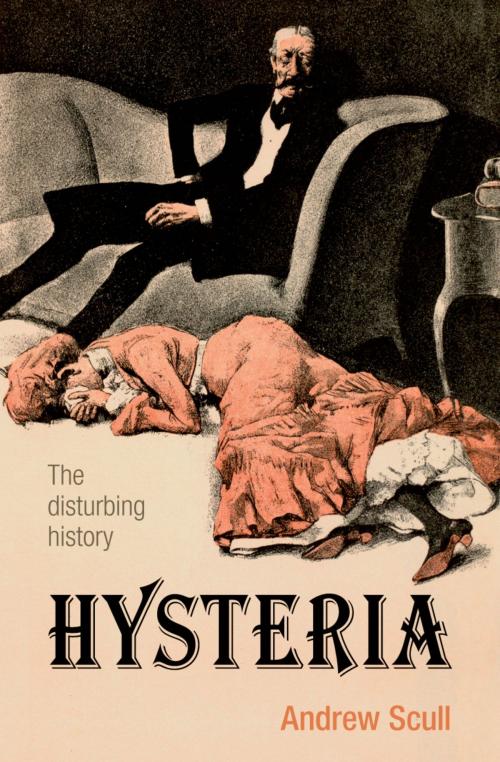Hysteria
The disturbing history
Nonfiction, Health & Well Being, Medical, Reference, History, Science & Nature, Science| Author: | Andrew Scull | ISBN: | 9780191623332 |
| Publisher: | OUP Oxford | Publication: | October 8, 2009 |
| Imprint: | OUP Oxford | Language: | English |
| Author: | Andrew Scull |
| ISBN: | 9780191623332 |
| Publisher: | OUP Oxford |
| Publication: | October 8, 2009 |
| Imprint: | OUP Oxford |
| Language: | English |
The nineteenth century seems to have been full of hysterical women - or so they were diagnosed. Where are they now? The very disease no longer exists. In this fascinating account, Andrew Scull tells the story of Hysteria - an illness that disappeared not through medical endeavour, but through growing understanding and cultural change. More generally, it raises the question of how diseases are framed, and how conceptions of a disease change through history. The lurid history of hysteria makes fascinating reading. Charcot's clinics showed off flamboyantly 'hysterical' patients taking on sexualized poses, and among the visiting professionals was one Sigmund Freud. Scull discusses the origins of the idea of hysteria, the development of a neurological approach by John Sydenham and others, hysteria as a fashionable condition, and its growth from the 17th century. Some regarded it as a peculiarly English malady, 'the natural concomitant of England's greater civilization and refinement'. Women were the majority of patients, and the illness became associated with female biology, resulting in some gruesome 'treatments'. Charcot and Freud were key practitioners defining the nature of the illness. But curiously, the illness seemed to swap gender during the First World War when male hysterics frequently suffering from shell shock were also subjected to brutal 'treatments'. Subsequently, the 'disease' declined and eventually disappeared, at least in professional circles, though attenuated elements remain, reclassified for instance as post-traumatic stress disorder.
The nineteenth century seems to have been full of hysterical women - or so they were diagnosed. Where are they now? The very disease no longer exists. In this fascinating account, Andrew Scull tells the story of Hysteria - an illness that disappeared not through medical endeavour, but through growing understanding and cultural change. More generally, it raises the question of how diseases are framed, and how conceptions of a disease change through history. The lurid history of hysteria makes fascinating reading. Charcot's clinics showed off flamboyantly 'hysterical' patients taking on sexualized poses, and among the visiting professionals was one Sigmund Freud. Scull discusses the origins of the idea of hysteria, the development of a neurological approach by John Sydenham and others, hysteria as a fashionable condition, and its growth from the 17th century. Some regarded it as a peculiarly English malady, 'the natural concomitant of England's greater civilization and refinement'. Women were the majority of patients, and the illness became associated with female biology, resulting in some gruesome 'treatments'. Charcot and Freud were key practitioners defining the nature of the illness. But curiously, the illness seemed to swap gender during the First World War when male hysterics frequently suffering from shell shock were also subjected to brutal 'treatments'. Subsequently, the 'disease' declined and eventually disappeared, at least in professional circles, though attenuated elements remain, reclassified for instance as post-traumatic stress disorder.















